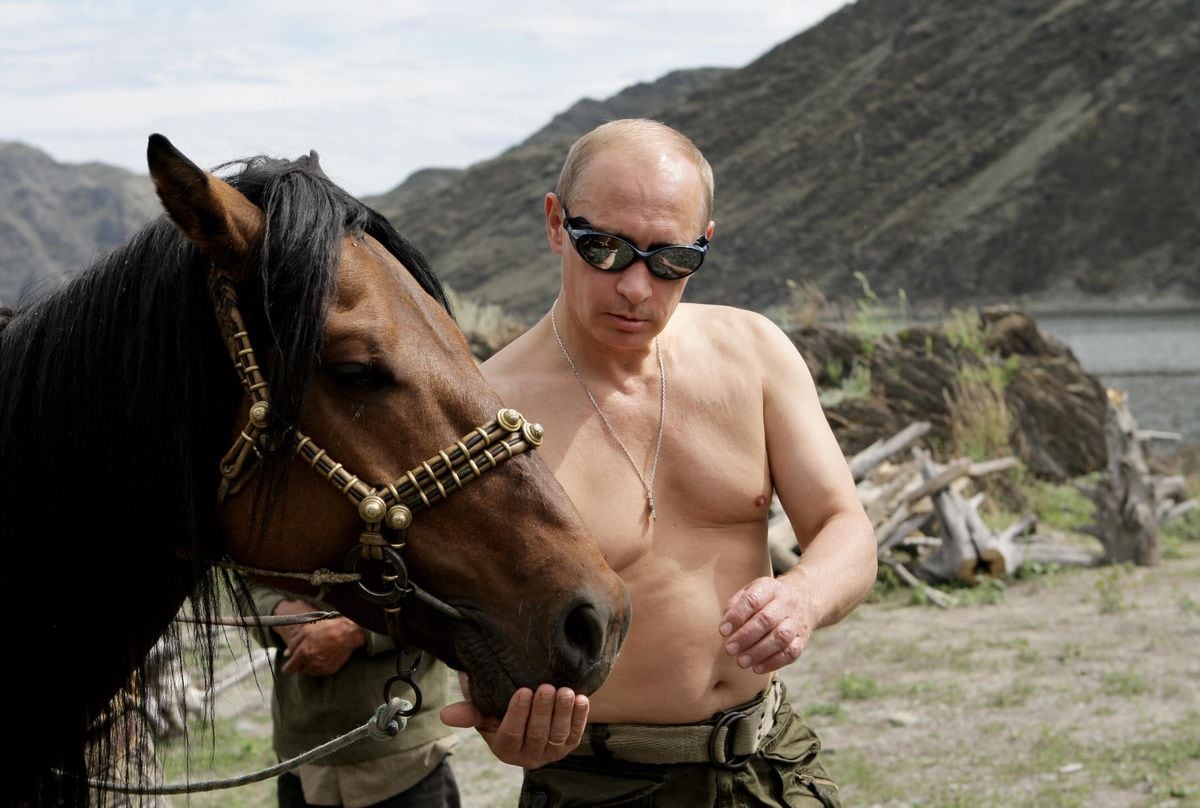There is an image here that will leave us perplexed, especially in these days of violence: several members of Daesh are preparing to record a propaganda video to recruit new activists when, attention, they behave like any teenager with a camera that they do not control .
They are not professionals of expression, of course, and the fearsome terrorist with a visible dagger, a vest loaded with military gadgets and other criminal props gets stuck, breaks and goes blank again and again.
—Where do I stand?
—You start with Salam Alaikum.
—Can that bird shut up?
—
Put the chop in front.
The dialogue between director, cameraman and terrorist is filled with laughter, nonsense and advice to get him to focus once and for all.
The kids laughed heartily but, when they manage to finish, the rest of us won't laugh.
Your video will flow through the global network with all the inflamed threat, the video game aesthetic and victory that attracts lone wolves to its ranks.
It's not comedy.
The documentary
Fantastic Machine
, by Axel Danielson and Maximilien Van Aertyck, which can be seen on Filmin,
collects this and other amazing scenes that, in short, go through the way in which cameras and broadcasting change us, condition us and can make us even worse than we are.
Here's another impressive one:
We put ourselves in a situation.
The prestigious BBC is reporting on a ruling that affects the rights of the Beatles and Apple when a young Congolese man named Guy Goma shows up at the building for a job interview.
On the set they are prepared to interview a copyright expert named Guy Kewney, but someone confuses the accountant and introduces him directly to the journalist.
Her gesture when she introduces him as a specialist is memorable.
We will quickly see that he does not know if he is facing a strange test that he must overcome to get the job or in an impossible quagmire:
—Has the verdict surprised you?
"What surprised me is that the verdict came down to me," he says, unsure, as he tries to recover. "It was a big surprise."
The journalist doesn't know anything and continues with the questions until she dismisses him so casually.
He has gotten away with some platitudes about Internet cafes and music downloads.
And with a bomb-proof reaction capacity.
I hope they hired him, although later I read on Wikipedia that they didn't.
That was in 2006 and, since then, the capacity for risk, change and evolution of our relationship with cameras has multiplied to infinity through the paths opened by YouTube, TikTok and networks in general.
The documentary will show us young people on the edge of cliffs or skyscrapers that they would never look at if they were not being filmed;
another who drops himself into the hole of a frozen lake to record a tutorial on how to get out;
terrorists teaching how to make bombs;
a woman sharing a painful and ridiculous fall that went viral;
a child whose parents remove a tooth with a thread;
a Putin or a Kim Jong-un on horseback to display virility... Any excuse is good to be seen, even if we make a fool of ourselves.
And we have all become actors in a great global spectacle.
The networks, in reality, have extended a visual productivity that had already begun with televisions, which were born as a hope for information and culture and which soon became a business for softened minds.
All of this is in the documentary.
"Let's be realistic.
My job is to help CocaCola sell its products,” says the general director of the first French commercial television channel.
“For an ad to stick in minds, brains must be kept entertained.
“Our product is the public’s available brain.”
And is anyone surprised by the algorithms that technology giants manufacture today from our data to sell us new and more products?
For decades, companies like Nielsen have been studying the reactions of the public's brains.
We'll see it there.
Producers buy the data and use it to design their programs.
In one of the most memorable scenes, an anthropologist shows natives of Papua New Guinea photos of themselves.
We are in 1969 and it is the first time they see each other.
And then we will witness the transformation of those warriors dressed in their paintings and displays of power into indecisive beings, also smiling, perplexed.
One of them decides after a while to take off the flabby and painful hat shown in the photo.
His certainties have been shaken and he is prey to that great companion of our visual times, which is insecurity.
Fantastic Machine
takes us from the present to the past and from this to that again and again, in a brutal mirror of what the camera changes in us and that leaves us with a big question: Who are we really?
Are we what we are or what we see? Are we that applicant for a job at the BBC or the specialist worth interviewing?
Because at all times the camera changes us, disrupts us, confuses us.
And it's always a good idea to come out on top.
You can follow EL PAÍS Television on
X
or sign up here to receive
our weekly newsletter
.
Subscribe to continue reading
Read without limits
Keep reading
I am already a subscriber
_

